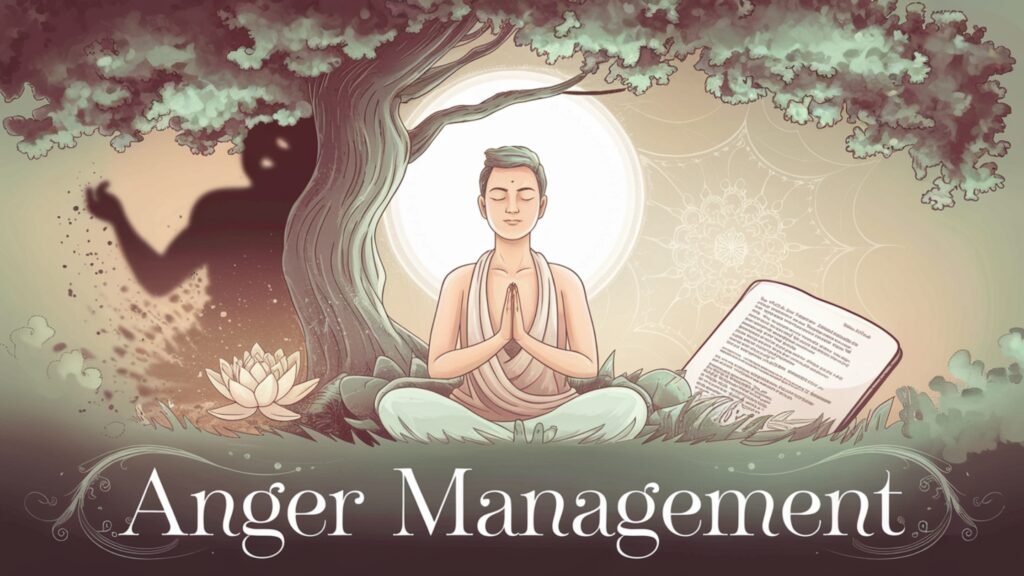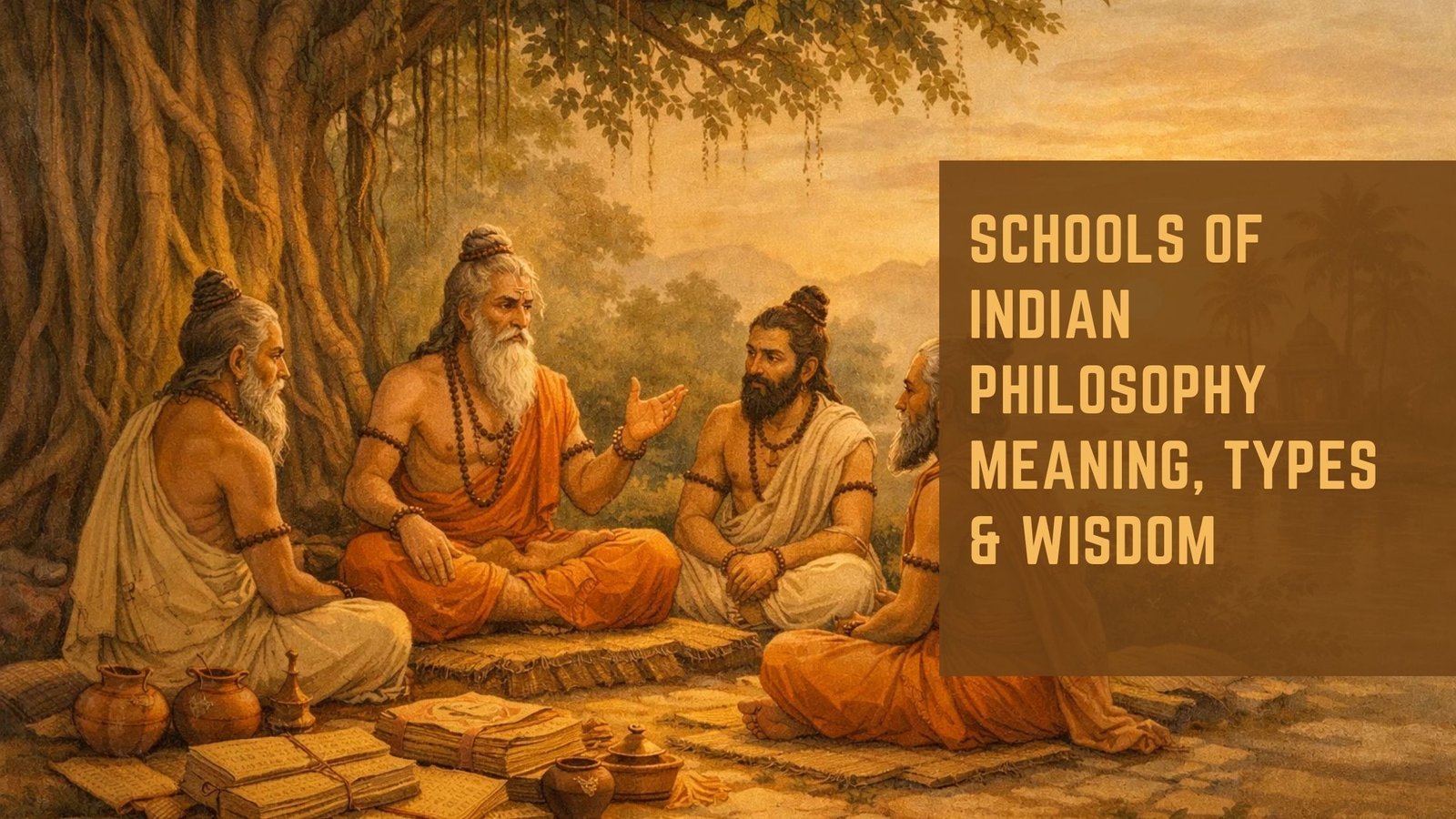Anger Management is not merely about controlling outbursts—it’s a holistic discipline that transforms our emotional landscape. Anger, if left unchecked, can destroy relationships, cloud judgment, and disconnect us from our true selves. But when understood and managed wisely, anger becomes a gateway to deeper self-awareness, resilience, and spiritual strength.

In this comprehensive guide to anger management, we will explore its causes, consequences, and solutions, through psychological, spiritual, and practical lenses. We will also incorporate timeless wisdom from scriptures and philosophers, providing a sacred roadmap to mastering this powerful emotion.
🔥 What is Anger?
Anger is a powerful emotional response to perceived threats, injustice, or frustration. It activates the fight-or-flight system, often releasing stress hormones like adrenaline and cortisol. While anger is a natural emotion, its mismanagement leads to suffering—for the individual and those around them.
There are various forms of anger:
- Passive Anger: Suppressed emotions manifesting as sarcasm or withdrawal.
- Explosive Anger: Sudden outbursts, aggression, or violence.
- Chronic Anger: Persistent resentment or irritability.
- Righteous Anger: Rooted in a desire to correct injustice.
“Anyone can become angry—that is easy. But to be angry with the right person, to the right degree, at the right time, for the right purpose, and in the right way—that is not within everybody’s power and is not easy.”
— Aristotle
🌱 Why Do We Need Anger Management?
1. Mental Health Preservation
Unmanaged anger often leads to stress, anxiety, depression, and insomnia. It interferes with emotional balance and peace of mind.
2. Physical Health Protection
Anger affects the body—leading to high blood pressure, cardiovascular issues, and weakened immunity.
3. Relationship Harmony
Chronic anger damages marriages, friendships, and professional ties. Anger management promotes compassion and communication.
4. Spiritual Awakening
Uncontrolled anger clouds spiritual clarity. Letting go of anger is essential for divine connection and enlightenment.
“क्रोध मन का शत्रु है।”
(Krodh man ka shatru hai.)
(Anger is the enemy of the mind.)

🧘♂️ Techniques for Anger Management
Let’s explore a toolkit for anger management that integrates mind, body, and soul.
1. Mindful Breathing
Slow, conscious breathing activates the parasympathetic nervous system and calms the mind.
Technique: Inhale deeply for 4 seconds, hold for 4, exhale for 4, and repeat for 2-3 minutes.
2. Meditation and Visualization
Daily meditation builds emotional regulation. Visualization helps transform anger into understanding.
🕉️ “ध्यान से क्रोध शांत होता है।”
(Dhyān se krodh shānt hotā hai.)
(Meditation pacifies anger.)
3. Spiritual Reflection
Read sacred texts or repeat mantras to gain spiritual insight and surrender ego.
“Be not hasty in thy spirit to be angry: for anger resteth in the bosom of fools.” — Ecclesiastes 7:9
4. The Pause Principle
Pause before reacting. It interrupts impulsive responses and enables rational thinking.
5. Journaling Your Triggers
Write about your anger triggers and how you reacted. This builds awareness and accountability.
6. Physical Activity
Exercise is an excellent anger outlet. It reduces stress and releases mood-enhancing endorphins.
7. Seek Guidance
Talk to a spiritual mentor, therapist, or join anger support groups.
🧠 Psychological Understanding of Anger
Modern psychology views anger as a secondary emotion, usually masking fear, sadness, or shame. Recognizing what lies beneath anger is the first step to emotional healing.
Cognitive Behavioral Therapy (CBT) in Anger Management:
CBT helps identify and reframe irrational beliefs that lead to anger:
- “They did this on purpose!”
- “This always happens to me.”
- “I must be respected at all times.”
CBT reframes such thoughts into realistic, peaceful affirmations.
🪷 Spiritual Teachings on Anger Management
🕉️ Hinduism
In the Bhagavad Gita, Lord Krishna explains that anger leads to delusion, which causes the fall of intellect and self-destruction.
“क्रोधाद्भवति सम्मोहः सम्मोहात्स्मृति-विभ्रमः।
स्मृति-भ्रंशाद्बुद्धि-नाशो बुद्धि-नाशात्प्रणश्यति॥”
(From anger arises delusion; from delusion, confusion of memory; from confusion, destruction of reason; from destruction of reason, one perishes.)
🙏 Sikhism
Guru Nanak Dev Ji emphasized the importance of conquering Krodh (anger) to reach divine bliss.
“ਜਿਸੁ ਅੰਦਰੁ ਕ੍ਰੋਧੁ ਵਿਕਾਰੁ ਹੈ ਤਿਸੁ ਰਾਮ ਪਿਆਰਾ ਨਾਹੀ ॥”
(One who harbors anger and corruption within, does not find the Lord.) — Guru Granth Sahib Ji
🌸 Buddhism
The Dhammapada teaches that hatred never ceases by hatred, but by love alone.
“You will not be punished for your anger; you will be punished by your anger.” — Gautama Buddha
💫 Benefits of Anger Management
Practicing anger management brings transformational benefits:
| Aspect | Benefit |
|---|---|
| Emotional | Increased patience, calmness, joy |
| Physical | Lower blood pressure, improved heart health |
| Relational | Stronger bonds, empathetic communication |
| Professional | Better leadership, decision-making |
| Spiritual | Greater divine connection, inner clarity |
“Anger is one letter short of danger.”
📜 Quotes on Anger Management
🌟 English Quotes
- “The greatest remedy for anger is delay.” — Seneca
- “Speak when you are angry and you will make the best speech you will ever regret.” — Ambrose Bierce
🕉️ Hindi Quotes
- “जो क्रोध को जीत लेता है, वही वीर कहलाता है।”
(He who conquers anger is the true warrior.) - “क्रोध के समय मौन रहना सबसे बड़ी साधना है।”
(Silence during anger is the highest discipline.)
🕊️ Punjabi Quotes
- “ਕਰੋਧ ਸਰੀਰ ਤੇ ਮਨ ਦੋਵਾਂ ਨੂੰ ਸਾੜਦਾ ਹੈ।”
(Anger burns both body and mind.) - “ਸਚਾ ਸਿਪਾਹੀ ਉਹ ਹੈ ਜੋ ਆਪਣੇ ਅੰਦਰ ਦੇ ਕ੍ਰੋਧ ਨੂੰ ਮਾਰ ਲਵੇ।”
(The true soldier is the one who conquers inner anger.)
🛤️ Journey Toward Inner Peace
To walk the path of anger management is to walk toward self-mastery. It’s a daily practice, a moment-by-moment choice to pause, reflect, and respond—not react. By transforming anger into compassion, we uplift ourselves and others.
Daily Mantra:
“Shanti, Shanti, Shanti” – Invoke peace in thought, speech, and action.
🧩 FAQs on Anger Management
Q1. Can anger be good?
Yes, when expressed mindfully, anger can inspire change, set boundaries, and bring justice.
Q2. How long does it take to manage anger?
With regular practice, people start noticing changes in a few weeks, but deep transformation takes months or even years.
Q3. Can spirituality really help manage anger?
Absolutely. Spirituality connects us to a higher purpose and detaches us from ego-driven reactions.
Q4. Is suppressing anger healthy?
No. Suppression can lead to internalized stress. Instead, transform and express it constructively.
🌈 Conclusion: Reclaim Your Power
Anger Management is not about becoming emotionless—it’s about gaining emotional wisdom. Anger is energy. You can use it to harm or to heal, to break or to build. The choice is yours.
“He who angers you conquers you.” — Elizabeth Kenny
📘 Ready to Go Deeper?
Explore timeless wisdom from the Gita on how to manage emotions, cultivate inner peace, and live with purpose. Learn practical life lessons drawn straight from divine scripture.
👉 Discover Life Lessons from the Gita — Your journey to self-mastery begins here.












